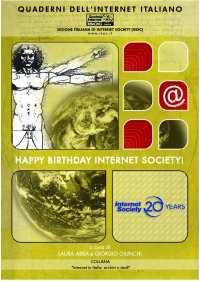- During
the first part of 1993, it was becoming increasingly obvious that the EARN
(European Academic and Research Network) network services, and consequently
the EARN Association, had no long-term future.
- With some
reluctance, the EARN Board of Directors concluded that some action was
needed to maintain those activities that were still of value.
- In May
a joint meeting of the EARN Board of Directors and the RARE (Réseaux
Associées pour la Recherchee Européenne) Executive Committee
agreed that they would start negotiations with a view to merging the two
organisations.
- The two
services which EARN were particularly concerned about were NJE (Network
Job Entry) and coordination and maintenance of LISTSERV software.
- At a meeting
of the RARE Council of Administration on October 24 1994 to which EARN
representatives were invited as observers, RARE members unanimously approved
the amendments to the statutes and the accompanying regulations, the changes
became official, and the meeting continued as the first General Assembly
of TERENA (Trans European Research and Education Networking Association).
- The first
vote was for the position of President and there were two candidates for
this position, one of them (Frode Greisen) previously associated primarily
with EARN, the other (Kees Neggers) with RARE. It was generally accepted
that Kees Neggers as the outgoing President of RARE would go on to lead
the new organisation and that the election would be little more than a
formality. The actual result was very close, with the "EARN"
candidate receiving 56 votes and the "RARE" candidate 53.
- The new
Executive (Marco Sommani was member) inherited the responsibility of ensuring
that steps were taken to deal with the practical issues that arose from
the merger.
- At the
December meeting there were ominous signs that the new organisation was
not working well. There was still no plan for a transition to a lower budget;
TERENA was also experiencing cash-flow problems.
- The Executive
was asked to produce a revised budget for the year, in time for discussion
at the May 1995 meeting of the General Assembly. By May 1995, however,
the situation had gone from bad to worse.
- One member
of the Executive had resigned in April 1995 and three more members resigned
just before the General Assembly meeting started.
- Several
members of the General Assembly threatened to leave TERENA altogether if
management problems were not resolved.
- The conclusion
of a long discussion was that the remaining members of the Executive should
be asked to resign, leaving the field clear for the election of a new Executive
with a more manageable size of five members.
- In the
elections that then took place, Stefano Trumpy was elected President.
- The two
1994 candidates for President were appointed as special advisors to the
Executive so as to maintain continuity of approach in areas which were
working well.
- Twelve
months later, the Executive was able to show that decisions vital to the
good health of TERENA had been implemented and that a large degree of consensus
over the activities of the organisation had been restored: TERENA was "back
on track".
|
![]()
![]()
![]()
